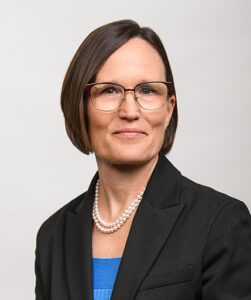“If the American experiment is to succeed, we must improve the quality of our conversations—our political, academic, and civic conversations,” IHS president Emily Chamlee-Wright writes in an essay published as part of a joint project on the future of democracy by the Kettering Foundation and Knight Foundation. The “Democracy and Civic Life” project brings thought leaders together for a series of 18 essays exploring current challenges to democracy and how philanthropy can make more of a difference—how it can help address challenges and shore up confidence “in government, institutions, and one another.”
In her essay, “The Conversations of a Self-Governing People,” Chamlee-Wright writes:
“[W]e are faced with a very American question: How do we govern ourselves as equal citizens? This is the question that the American experiment poses. It’s well understood that a liberal democratic order requires specific formal arrangements: constitutional guarantees that constrain authority and protect a robust private sphere. But alongside these formal arrangements are informal sensibilities that govern much of the day-to-day interaction in which we, as a diverse, independent, interconnected people, engage. Human conversation is the medium through which this informal governance unfolds.”
– Emily Chamlee-Wright
“How we talk to one another sets the stage for how we treat one another. The better the quality of our conversations—the more good conversations we have than bad ones—the easier it is to recognize the humanity in one another and the more likely we are to succeed in governing ourselves as equal citizens.”
Chamlee-Wright identifies seven design principles of a good conversation:
- The presumption of dignified equals
- Knowledge-seeking humility
- Critical thinking
- Assumption (and practice) of good faith
- Courage with civility; civility with courage
- Honesty
- Contestability
Read her full essay, “The Conversations of a Self-Governing People,” and learn more about the Knight Foundation and Kettering Foundation’s “Democracy and Civic Life” project.
